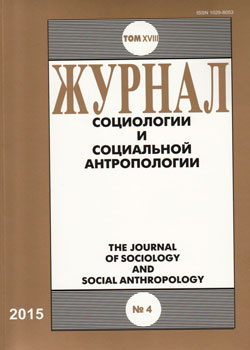Does Disagreement over Child-Rearing Rules Affect Parental Self-Efficacy?
Keywords:
parental self-efficacy, intensive motherhood, social support, intergenerational relationships, grandparenting
Abstract
Existing studies show that parental self-efficacy is an important factor of positive parental practices and child development. In this paper we focus on factors associated with level of maternal self-efficacy. Features of modern motherhood (intensive motherhood, ‘parental determinism’, anxiety and high risk-consciousness) suggest that one of these factors is disagreement over child-rearing rules or parenting principles between a mother and her relatives. Our main research question is whether disagreement affects parental self-efficacy beliefs of mothers. The study is based on an online survey of 670 mothers of pre-school children and 50 semi-structured interviews with mothers. According to the survey disagreements over child-rearing rules are frequent — about 20% of mothers say that family and friends have criticized them for the way they care for a child; about 30% — that it is difficult to find an agreement with relatives about principles and rules of parenting, 25% — that they have to limit the time a child spends with family, because of these disagreements. The proportion of mothers who noticed that they have disagreements with relatives over child-rearing rules is lower among working mothers and higher among mothers who support some of the popular child-rearing theories. Our analysis also shows that disagreements have a negative impact on parental self-efficacy.
Published
2015-05-20
How to Cite
Kozmina, Y., & Sivak. (2015). Does Disagreement over Child-Rearing Rules Affect Parental Self-Efficacy? . ZHURNAL SOTSIOLOGII I SOTSIALNOY ANTROPOLOGII (The Journal of Sociology and Social Anthropology), 18(4), 65–81. Retrieved from http://jourssa.ru/jourssa/article/view/415
Section
Sociology of the Family

